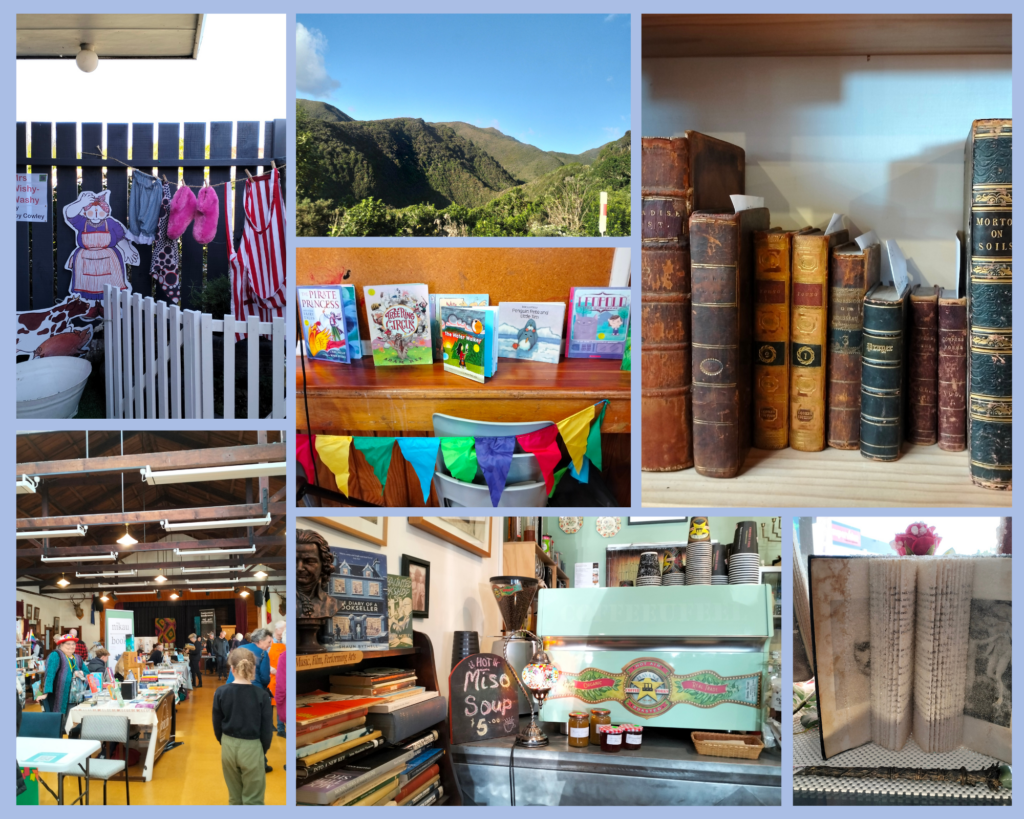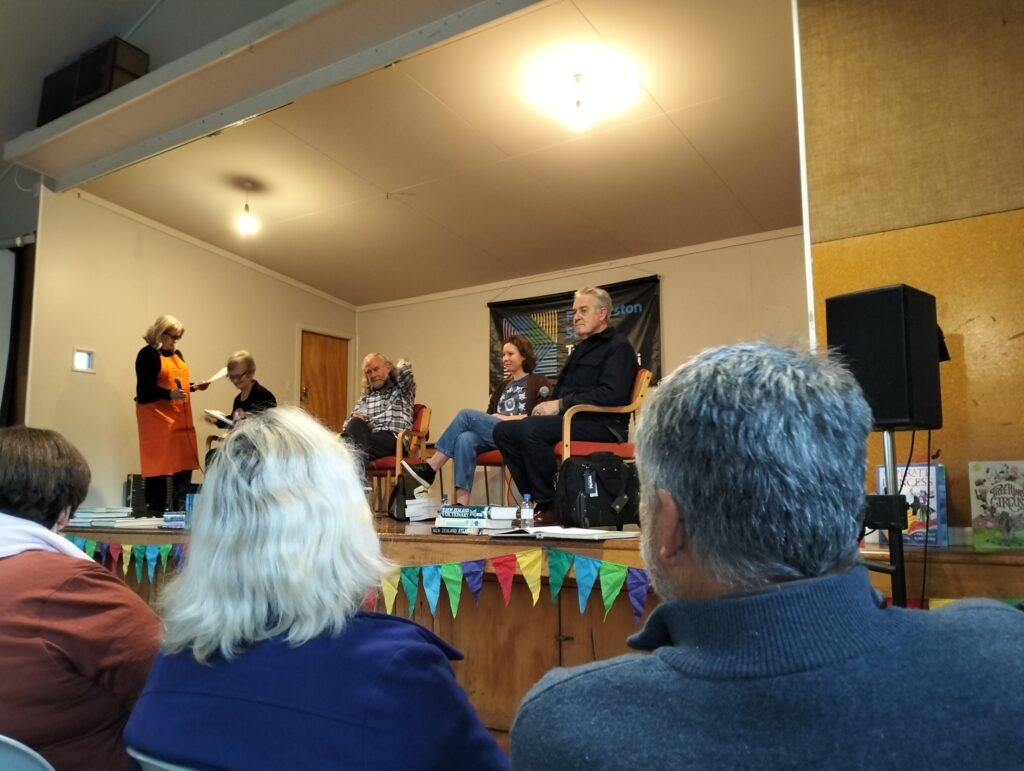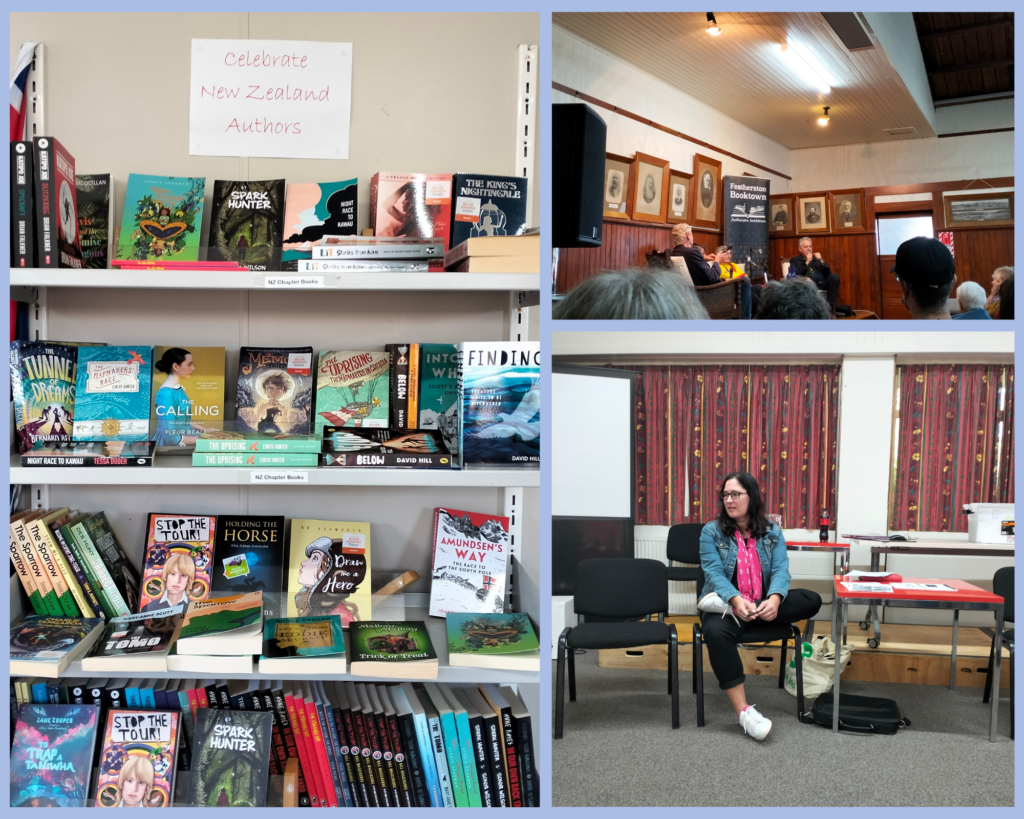Sapling editor Hannah Marshall tapped into her inner journalist to attend the Featherston Booktown festival earlier this month. Her findings are reported here (spoiler: she loved every minute of it).

On any ordinary day, the small southern Wairarapa town of Featherston appears pretty innocuous. It’s the first town you drive through after surviving the Remutaka Hill Road, and maybe it’s because the stress of navigating the Remutaka’s stomach-curdling twists and turns is still muddling my mind, but I’ve never actually thought to stop in Featherston. In my city-rat mind, I didn’t see much reason to.
Featherston has a secret, though. It has the honour of being New Zealand’s one and only Book Town, an official title bestowed by the International Organisation of Book Towns for rural towns that have a high concentration of antiquarian and second-hand bookstores. The first Book Town was Hay-on-Wye in Wales, named so by the Book Town concept’s initiator, Richard Booth, in 1961. Today, there are about 20 Book Towns across the world, and Featherston is one of only two to be based in Australasia.
Today, there are about 20 Book Towns across the world, and Featherston is one of only two to be based in Australasia
Featherston has seven bookstores spread across a population of roughly 2,500 people. To celebrate its unique literary status, the town comes alive each year with every bibliophile’s delight, the Featherston Booktown festival. Held on the second weekend of May, it’s a melting pot of writers’ talks, workshops, and general bookish fanfare—and plenty of events focused on young readers and the writers that make up our country’s kidlit scene.
Talk about a secret well-kept. In the name of investigative journalism, I piled in for an overnight roadie from Wellington to the Wairarapa, to see what Booktown was all about.
As a representative from The Sapling, I had the privilege of attending several events for free. After emotionally recovering from the Remutaka Hill Road—as a passenger, I should add—I headed to my first event on Saturday evening, Illustrators on Stage. In a cosy school hall adorned with books and bunting, literature royalty Gavin Bishop, Martin Baynton and our very own Giselle Clarkson talked all things illustration in a discussion wrangled by the effervescent Fifi Colston.
In the name of investigative journalism, I piled in for an overnight roadie from Wellington to the Wairarapa, to see what Booktown was all about
It was magnificent. Okay, I’ll admit it, I naively thought picture book illustrations were just a visual extension of the writer’s words, but these esteemed illustrators taught me overwise. They’re storytellers in their own right, and the story they tell is unique to what the author has put on the page. An illustration can tell us so much about a story that can’t be put into words. I left the event feeling awed and heart-warmed by each illustrator’s clear passion, and with a renewed respect for the craft of creating children’s books.

On Sunday morning, Lauren Keenan (Te Āti Awa ki Taranaki) led an intimate and engaging workshop on writing historical fiction for young people, on the back of the release of her time-travel novel Amorangi and Millie’s Trip Through Time. In a semi-circle made up of kids, parents, and curious adults, we talked about the value and challenges of writing stories set in the past and the general importance of understanding history. These were some pretty hefty topics on the table, but the inviting and accessible atmosphere rewarded us with many insightful remarks—a reminder never to underestimate a young person and their understanding of the world.
[Joy Cowley’s] ethos to write stories where every kid is a winner is why she is one of our country’s greatest writers
Arguably, my favourite event was a panel discussion between Gavin Bishop, Joy Cowley, and Renée, chaired by Peter Biggs (Lynley Dodd was also slated to be on the panel but could not make it). It was such a privilege to hear the wisdom of Aotearoa’s veteran writers. Joy Cowley was bright, bubbly, and her love and passion for writing for children shone through. Joy has made a point of never calling her young characters ‘small,’ nor letting them act small; the adults aren’t allowed to be the heroes in her stories. Reflecting on her own childhood of upheaval and inconsistency, where, in her words, ‘nothing was constant,’ stories take on an extra responsibility of ‘washing away those feelings [of being small and helpless] with honour…to teach kids to like themselves.’ As someone who was considered a ‘failed reader’ as a child, Joy understands the devastation of being named for your failures and the bleak future it beholds. Her ethos to write stories where every kid is a winner is why she is one of our country’s greatest writers.

The plethora of events on offer are the star of Featherston Booktown, but the festivities didn’t stop there; throughout the town were pop-up book stalls, buskers, food trucks, and, of course, the bookstores that are Featherston’s claim to fame in the first place. Featherston’s bookstores have something to suit every kind of bibliophile—from Messines’ specialisation in military history to Loco’s in-store coffee machine to the dedicated children’s bookstore Chicken and Frog. The town was bustling, the locals were friendly, and the love for literature was obvious. To simply be amongst this atmosphere was special enough.
It was an inspiring and eye-opening weekend, with plenty on the itinerary celebrating our rangatahi and their stories
Featherston rightly deserves its title as a Book Town, and the Booktown festival should be on every booklover’s calendar. It was an inspiring and eye-opening weekend, with plenty on the itinerary celebrating our rangatahi and their stories. I learned a lot over my weekend in this quirky little town—about the sheer amount of love, passion, and drive behind our children’s literature scene, from our writers to readers to our young people. In a world where adult literature is the focus, it was refreshing to see the value of children’s books so firmly cemented. It’s safe to say our children’s literature industry is in great hands.

Hannah Marshall is a reader, writer, and advocate for New Zealand books from Wellington. She has a Bachelor of Arts in Media Studies from Te Herenga Waka—Victoria University of Wellington, and she is currently doing her Master of Arts in Creative Writing at VUW's International Institute of Modern Letters. Her debut YA novel, It's a Bit More Complicated Than That, is being published by Allen & Unwin in 2025.



